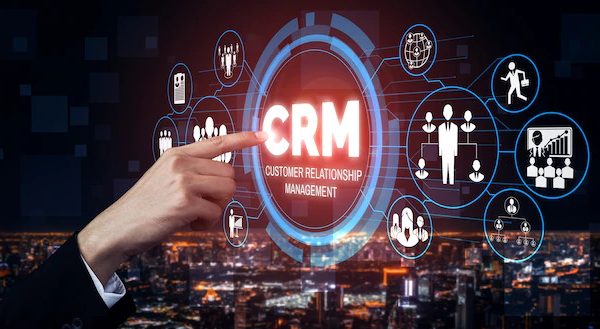When it comes to choosing the best CRM for a SaaS startup, there are many factors to consider. The right CRM can help your business grow and thrive, but it also has to fit your needs and budget.
In this post I’ll explain how to choose the best CRM for your SaaS startup so that you can focus on building your business instead of managing it!
1. Understand Your Business Needs
You need to understand your business needs, customer needs and sales team needs. This will help you in choosing the best CRM for your startup.
If you are a SaaS startup, then it is important that you understand your finance team’s needs as well. The same goes with legal, HR and IT departments.
You should also keep an eye on marketing strategies because they play an important role in launching products or services efficiently without any glitches later on down the line!
Understand what you want to achieve with a CRM system and how it can help you meet your business needs.
- Identify your target audience: Understand who your target audience is and what their needs are. This will help you choose a CRM system that caters to those needs.
- Analyze your current processes: Understand how your business currently operates and where there are inefficiencies. A CRM system can help streamline these processes and make them more efficient.
- Evaluate your budget: Understand how much you are willing to spend on a CRM system and choose one that fits within your budget.
- Research different options: Understand the different CRM options available in the market and evaluate which one best suits your business needs.
- Test it out: Before making a final decision, it is important to test the CRM system out to ensure it meets all your requirements and integrates well with your existing systems.
2. Find the Best Fit for Your Startup
You’ll need to find a CRM that fits your business needs, budget and team’s needs. You should also consider the brand’s needs, prospecting strategy and more.
Before choosing a CRM for a startup, it’s important to understand what your business needs and which features are most important to you. Consider factors such as sales automation, customer segmentation, and analytics capabilities.
- Research potential options: Look for CRM startups that specialize in the specific industry or business model of your company. Evaluate their features, pricing, and user reviews to narrow down your list of options.
- Schedule demos: Once you have a list of potential CRM startups, schedule demos to see how the software works and how it can be customized to fit your business needs.
- Consider scalability: As your business grows, your CRM system will need to adapt. Choose a CRM for startups that can scale with your business and that has a strong track record of growth.
- Evaluate customer support: The best CRM for startups will have a dedicated customer support team that can help you with any questions or concerns. Make sure that the startup you choose has a good reputation for customer support.
- Implement and test: After selecting a CRM startup, implement it and test it with a small group of users before rolling it out to the entire organization. This will help you identify any issues and make any necessary adjustments.
- Continuously review and improve: Implementing a CRM system is not a one-time task. Continuously review your system and make improvements as needed to ensure that it is meeting your business needs.
3. Customer Lifetime Value (CLV)
Customer Lifetime Value (CLV) is a metric that tells you how much money you will make from a particular customer. It’s calculated by multiplying the lifetime value of a single customer by the number of customers. Who have been acquired through acquisition costs.
If your business model is primarily based on recurring revenue, then CLV can help you predict how much profit each new customer brings in over time.
For example, if every new account brings in $20 per month and there are no other expenses involved with acquiring them (such as marketing), then their contribution to overall revenue would be 20% ($40).
A CRM software can help businesses improve customer lifetime value in several ways:
- Retention: It allows businesses to track customer interactions, purchase history, and feedback, which can help identify at-risk customers and take actions to retain them. This can help to increase the length of the customer’s relationship with the business, and thus increase their lifetime value.
- Upselling and Cross-selling: It can be used to identify customer purchasing patterns and suggest relevant products or services, which can increase revenue per customer and increase lifetime value.
- Personalization: It can be used to segment customers and personalize their interactions with the business. By providing personalized offers, discounts and experiences, businesses can increase customer loyalty, repeat purchases and ultimately increase customer lifetime value.
- Analytics: It helps to analyze customer data and identify patterns and trends, which can help businesses to understand what drives customer loyalty and take actions to increase lifetime value.
- Automating Follow-up: CRM software can automate the follow-up process, ensuring that customer feedback is acted upon in a timely and efficient manner.
4. Sales Pipeline
You may not be aware, but most SaaS companies rely on the sales pipeline–a list of qualified leads and deals that you’re working to close. If you want your company to grow, then it’s important that you know how to create a sales pipeline.
The first thing you need is a plan for who will get paid what when. Then figure out how long each lead will take before they buy from us (or someone else).
You’ll also need an easy way for customers or prospects who aren’t interested in buying right now. But might be later down the road–those are called “landing pages”–to track their progress through the process. So, they don’t get lost in all of this stuff happening at once!
Let’s take a look how CRM software can help businesses create and manage a sales pipeline in several ways:
- Lead tracking: CRM software allows businesses to track leads from initial contact through to closing a sale. This includes information such as contact details, lead source, and the stage of the sales process.
- Sales forecasting: It helps to create sales forecasts by analyzing historical data, such as past sales and lead conversion rates. This can help businesses predict future revenue and plan resources accordingly.
- Automating sales processes: CRM software can automate repetitive tasks, such as sending follow-up emails, setting reminders for sales calls, and scheduling appointments. This frees up salespeople to focus on closing deals.
- Collaboration: It allows teams to collaborate on sales activities and share information about leads and accounts in real-time. This helps businesses to work more efficiently and effectively.
- Data analysis: CRM can be used to analyze data, such as customer demographics and purchasing history, to identify trends and patterns that can help businesses to better target leads and improve their sales pipeline.
5. Net Promoter Score (NPS)
Net Promoter Score (NPS) is a customer satisfaction survey that measures the willingness of your customers to recommend your company.
It’s used to determine the level of loyalty a customer has for you and how likely they are to purchase from you again in the future.
The NPS score is calculated by asking customers this question: “How likely would it be for you to recommend us? On a scale from 0 – 10, with 10 being very likely and 0 being not at all likely.” Customers then rank their response on a scale from 1-10, where 10 means “very satisfied” and 1 means “very unsatisfied”.
CRM can help a business improve its Net Promoter Score (NPS) in several ways:
- Gathering customer feedback: It allows businesses to gather customer feedback through surveys, polls, and other methods. This feedback can be used to identify areas of improvement and track changes in customer satisfaction over time.
- Identifying and tracking customer interactions: CRM software can be used to track customer interactions, such as phone calls, emails, and in-person meetings, which can help businesses understand how their customers interact with them. This information can be used to improve customer service and identify patterns of customer behavior that may be impacting NPS.
- Analyzing customer data: It helps to analyze customer data, such as purchase history, demographics, and feedback, to identify patterns and trends that can help businesses understand what drives customer loyalty.
- Automating follow-up: CRM automates the follow-up process, ensuring that customer feedback is acted upon in a timely and efficient manner. This can help businesses quickly identify and address issues that may be impacting NPS.
6. Make Sure to Choose a CRM That Fits Your Business
When choosing the best CRM for your business, you need to make sure that it fits your company’s specific needs.
Here are some questions to ask yourself:
- What type of data do I need? Do I want all of my customer data stored in one place or do I prefer separate databases for each customer? How am I going to access this information? Will it be available via mobile app or desktop software, or both?
- What features do our customers value most? What features will help us grow our business and reduce costs (such as those related to invoicing)? How often do our customers use these features–do they change over time or stay consistent throughout their interactions with us over time
7. Make Sure Your Prospecting Strategy is Working
You’ve got a solid understanding of what your company does, but you need to make sure your sales pipeline is moving as well.
Here are some ways to check:
- Sales Pipeline – Make sure that every prospect has been moved along in the process and is being contacted by someone from the company. This includes both internal contacts and external ones (i.e., social media). If someone hasn’t received an email from you yet, they won’t be able to buy from you if they don’t know about it!
- Leads – You should have a lead list that’s updated regularly so everyone knows where all their potential customers are at any given time (for example: “We have 538 new leads waiting for an opportunity”). In addition, make sure each person on this list knows how long it could take them before getting contacted again because otherwise they might not respond when contacted next time around which would hurt productivity overall because everyone wants faster results than slow ones after all!
8. Consider Your Target Market
Considering the target market is important when choosing a CRM because the CRM needs to be tailored to the specific needs and requirements of the market it is being used for.
For example, a CRM for a B2B market will have different features and capabilities than a CRM for a B2C market.
By considering the target market, a company can ensure that they are selecting a CRM that will best meet the needs of their customers. And help them to effectively manage and grow their customer relationships.
- Know your target market’s competitive advantage, if any (e.g., price, quality).
- Consider how fast the growth rate of this segment will be and what kind of revenue potential (revenue per user) it has in mind for itself over time–this can help you decide whether you should focus on acquiring new customers or expanding existing ones through retargeting campaigns with ads that are more relevant to them than others on other platforms (e.g., Facebook ads).
9. Assess Your Brand’s Needs
Before you can decide which CRM is best for your business, you need to assess its features. This will help you understand how it would fit into your overall strategy.
- What is the mission of your company?
- What is the vision for where you want to take your brand?
- How does this fit in with other parts of the organization and what does success look like for this particular product or service offering?
10. Pick the Provider That Offers the Most Value for Your Budget
In the next step, you’ll want to pick the provider that offers the most value for your budget.
HubSpot is one of the best CRM systems for SaaS businesses because they offer a free trial and a free plan. So, you can try it out before buying it. If it doesn’t work out for whatever reason, then at least there is no risk involved!
Here are a few tips to help you choose a budget-friendly CRM for your SaaS business:
- Determine your specific needs: Before you begin your search, take some time to evaluate your business’s specific needs. This will help you narrow down your options and make it easier to find a CRM that fits your budget.
- Look for a free trial: Many CRM providers offer a free trial, which allows you to test out the software before committing to a purchase. This is a great way to ensure that the CRM you choose meets your needs and fits within your budget.
- Compare pricing plans: Not all CRMs are created equal, and pricing can vary widely. Compare pricing plans from multiple providers to find the one that offers the most value for your money.
- Check for integration options: If you’re using other software tools, such as marketing automation tools, accounting, or project management software, make sure the CRM you choose can integrate with them, this will save a lot of time and effort.
- Read reviews: Before making a final decision, read reviews from other users to get an idea of their experiences with the CRM.
- Look for a CRM with open API: With open API, you can easily customize and integrate the CRM with your other tools without breaking the bank.
Why is Hubspot the Best CRM for a SaaS Business?
HubSpot is the best CRM for a SaaS business because it’s easy to use, affordable and powerful.
It has a great customer support team that can help you integrate with other tools like Gmail and Salesforce.
There are several key reasons why HubSpot is considered to be the best CRM for a SaaS business:
- All-in-one platform: HubSpot offers a variety of tools, including a CRM, marketing automation, and sales automation, all in one platform. This allows SaaS businesses to easily manage and track their customer relationships, marketing campaigns, and sales efforts in one place.
- Scalability: HubSpot is designed to grow with a business, making it a great option for SaaS businesses that are looking to scale.
- Inbound marketing: HubSpot’s inbound marketing capabilities make it well-suited for SaaS businesses that are looking to attract and engage potential customers through content marketing, social media, and search engine optimization.
- Integrations: HubSpot integrates with a wide range of third-party tools, including popular SaaS applications such as Google Analytics, Salesforce, and Zendesk, making it easy for SaaS businesses to connect their existing tools and platforms.
- Support: It offers a variety of resources, including training, tutorials, and a customer support team, to help SaaS businesses get the most out of the platform.
- User-friendly: HubSpot is known for its user-friendly interface and easy-to-use features, making it a great option for SaaS businesses that want a CRM that is easy to set up and use.
Why Growing Enterprise SaaS Startups Using Hubspot?
HubSpot is a great CRM for a SaaS business. It has many features that make it easy for you to manage your customers, leads, and sales processes.
- Scalability: As a business grows, so do the number of leads and customers. HubSpot is designed to scale with a business and can handle a large volume of data and contacts.
- Sales and marketing automation: HubSpot offers a range of sales and marketing automation features that can help a growing enterprise SaaS startup streamline and automate their sales and marketing processes, saving time and resources.
- Inbound marketing: HubSpot’s inbound marketing capabilities, including SEO, content creation, and email marketing, can help a growing enterprise SaaS startup attract and engage potential customers.
- Lead management: It has advanced lead management tools that can help a growing enterprise SaaS startup track and nurture leads through the sales funnel.
- Reporting and analytics: HubSpot CRM provides detailed reporting and analytics on key metrics such as website traffic, lead generation, and sales performance, which can help a growing enterprise SaaS startup track their progress and make data-driven decisions.
- Integration: It integrates with a wide range of third-party tools, including popular enterprise SaaS applications, making it easy for a growing enterprise SaaS startup to connect their existing tools and platforms.
- Support: It offers a variety of resources, including training, tutorials, and a customer support team, to help a growing enterprise SaaS startup get the most out of the platform.
Conclusion
CRM has become the most important tool for any SaaS business. A customer-friendly CRM helps you to manage all your customers and prospects, track them through their lifecycle stages and engage with them in a personal way.
If you’re looking for a reliable, affordable, functional and easy to use CRM for your SaaS business then it can be said that HubSpot will be the best option for you surely.
It comes with all you need to build and grow your SaaS business. Sign Up HubSpot CRM and enjoy FREE trial.






You are really a excellent webmaster. This website loading velocity is amazing.
It sort of feels that you’re doing any distinctive trick.
Moreover, the contents are masterwork. you have done a excellent job on this matter!
Similar here: tani sklep and also here: Najtańszy sklep
Hey there! Do you know if they make any plugins to help with Search Engine Optimization? I’m trying to get my blog to rank for some targeted keywords but I’m not seeing very good success.
If you know of any please share. Thank you! I saw similar
blog here: Backlink Portfolio
Wow, fantastic weblog format! How long have you ever been blogging for?
you made running a blog look easy. The overall look of your web site is
magnificent, as neatly as the content material!
I saw similar here prev next and those was wrote
by Derrick81.